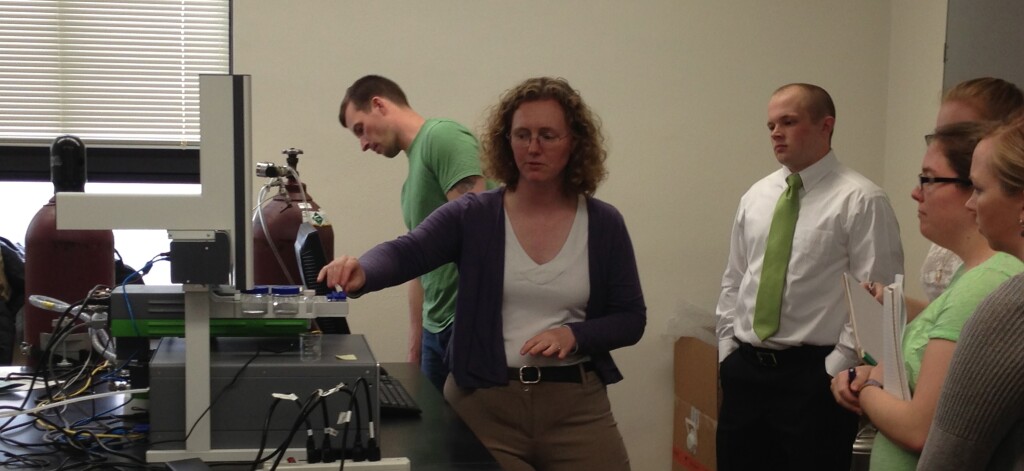Water Stable Isotopes
Anne began using water stable isotopes as a way to understand hydrological processes when she was an undergraduate student, and she enjoys finding applications of this tool to the scientific questions in which the Watershed Lab is interested.
Recent Projects
Urban watersheds: We have applied water stable isotope techniques to our work on urban watersheds. In collaboration with Aditi Bhaskar (Colorado State University), we explored how water stable isotopes could be used to quantify the amount of municipal tap water in urban baseflow. We have also shown that stormwater ponds impart distinct isotopic signatures during and following storm events.
- Fillo, N.F.., Bhaskar, A.S., and Jefferson, A.J.. 2021. Lawn irrigation contributions to semi-arid urban baseflow based on water-stable isotopes. Water Resources Research. 57(8):e2020WR028777. doi: 10.1029/2020WR028777.
- Jefferson, A., Bell, C., Clinton, S., and McMillan, S. 2015. Application of isotope hydrograph separation to understand urban stormwater dynamics, Hydrological Processes, 29(25): 5290-5306. doi: 10.1002/hyp.10680.
Isoscapes: Graduate student Jeff Timmons developed lake and groundwater isoscapes for northeastern Ohio to explore the influence of lake effect precipitation on the region’s water resources. Jeff’s data also contributed to a national-scale study of isotopic heterogeneity in urban water sources, now out in PLOS ONE.
- Stantis, C., Serna, A., Verostick, A., Tipple, B., Jefferson, A.J., Bowen, G.J. 2024. Isotopic Heterogeneity in U.S. Urban Water Supply Systems Reflects Climatic, Environmental, And Sociodemographic Factors: Implications for Forensic Identification. PLOS ONE. 19(11): e0311741, doi: 10.1371/journal. pone.0311741.
Education: An NSF funded project to investigate whether hands-on experiences would improve students’ conceptual understanding of stable isotopes (“Bridging the Conceptual Divide Between Theoretical and Applied Environmental Chemistry”) ran from 2012 to 2017. PIs on the project were Anne Jefferson, Liz Griffith, Joe Ortiz, and David Dees. We developed curriculum that uses water isotope data for several upper level Earth Science classes. This curriculum enables students to run the Picarro Water Isotope Analyzer (in Anne’s lab) and analyze their own data in an effort to improve student understanding of course material. We have also explored ways to transfer our curricular activities to institutions that do not have isotope analytical capabilities. If you are a faculty member at another university and would like to test our materials (either with your own isotope analyzer or without), please contact Anne. You can see the materials and methods for the Rayleigh distillation module in this open access publication, and you can see all of the data and analysis for the isotope hydrograph separation module on the SERC website.

